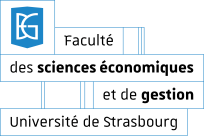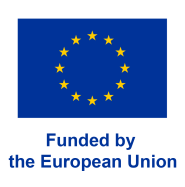DEFI Chair (2021-2024) : "Understanding and Disseminating on European Fiscal Integration"
The Jean Monnet Chairs aim to deepen the teaching of European studies included in the official curriculum of a higher education institution; and to provide in-depth teaching of European issues affecting fields that are increasingly sought after on the job market.
The Jean Monnet Chairs are also encouraged to offer open educational resources in order to make learning more flexible and accessible.
Context and overall objectives
The challenges to be met in the European Union are numerous following the various successive crises that have occurred since the 2000s: financial crisis of 2008, Great Recession, sovereign debt crisis in 2010, pandemic crisis in 2020, war in Ukraine from 2022, energy crisis, multiplication of climate disasters, lasting deterioration of public finance in some EU countries...). To overcome these challenges, national and European public finance have a major role to play, thus claming for a new European economic and budgetary governance.
The chair "Understanding and Disseminating on European Fiscal Integration" (DEFI Chair) has made it possible to develop new research and disseminate academic knowledge on the issue of European budgetary and fiscal integration in the face of the challenges to be met. This chair has also made it possible to develop an international network of researchers federated around the issue of European budgetary integration and to stimulate a dynamic of European universities.
Work performed and main achievements
The DEFI chair made it possible to teach fiscal issues abroad (Greece, Portugal, Italy, the Netherlands, the United Kingdom, Belgium, Romania, Canada), which enable to facilitate exchange with students from many European countries and to encourage student mobility to Strasbourg or these partner foreign universities. The content of these courses was also offered in the form of short podcasts freely available to the entire European student communit.
Moreover, these missions abroad made it possible to build an interdisciplinary network of European researchers specializing in budgetary issues (economics, law, political science) and to set up different collaborations (European contracts sumbission).
This collaboration also resulted in the opening of a double degree with the Catholic University of Louvain of the master's degree in macroeconomics and European policies from the start of the 2024 academic year.
At the same time, the organization of two European conferences in Strasbourg (2021, 2023) and a Franco-German conference on « Economic Resilience and Borders »also made it possible to bring together a network of experts on issues of European macroeconomic governance.


